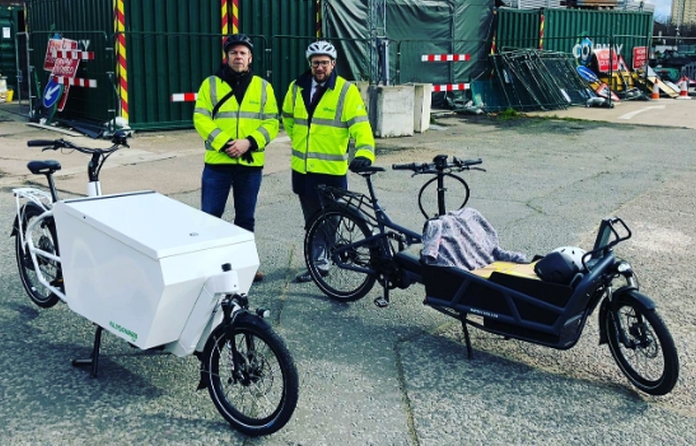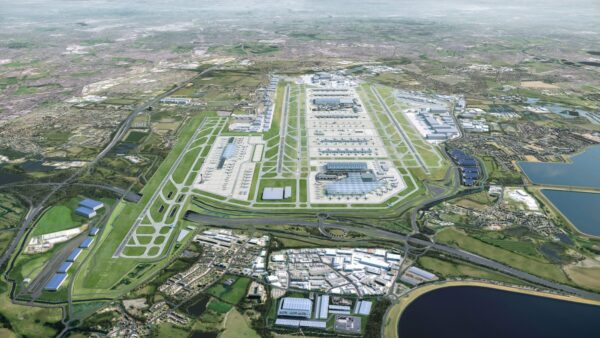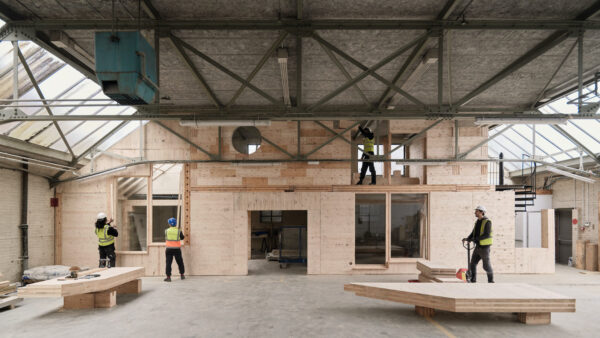
FM Conway is trialling e-cargo bikes in a bid to reduce the number of construction vehicles travelling into London.
The cargo bikes have been designed to carry construction materials of various sizes and weights, including bags of sand and boxes of fixings, using two-, three- and four-wheeled custom-built frames. All of the bikes are fitted with electric pedal assist motors.
FM Conway is using the bikes on phase 2 of the Illuminated River project, which involves fitting LED lights to five London bridges, and is one of the longest public art project in the world.
The plans were to deliver materials and equipment by van. However, Transport for London (TfL) raised the benefits of using cargo bikes during a traffic management meeting with FM Conway and asked if they could be considered to deliver materials during works.
The Mayor of London Sadiq Khan, through TfL, aims to reduce the number of lorries and vans entering central London in the morning peak by 10% by 2026 and TfL hopes that incorporating cargo bikes can help towards achieving this target. Since the covid-19 outbreak, the mayor has also announced plans to improve cycle access in central London to help with lockdown restrictions.
After an introductory trial, FM Conway started using the bikes to assess what sort of materials they can carry, as well as undertaking off-road and on-road tests to assess loading capabilities and bike handling with loads of up to 100kg.
Electric motor assist
Adam Barnes, senior contract manager at FM Conway, said: “As a cyclist with average experience, I was initially a little bit hesitant to ride the cargo bike. With the prospect of having a delivery load added to the bike this only heightened my nervousness around the planned ride. However, any concerns I may have had were quickly reassured.
“As soon as I got on the bike to do some practice laps of our yard in Southwark, I quickly realised the ease of riding with the use of the electric assist motor on the bike. As to be expected, you must be aware of the slightly larger frame of the bike, but the handling and engineering of the bike make the bike very user friendly. The ride itself really demonstrated the flexibility and capability of the bikes in terms of being used for general logistics within the construction industry.
“With the use of TfL’s cycle highways and local quiet way route before we even knew it we had arrived at our first destination, Blackfriars Bridge. The ride was very easy, it felt comfortable and safe even when encountering some unforeseen highway works on the route.
“Being on the ride has really given me a better perspective for the use of cargo bikes from both the view of the rider and the operational potential within the industry. I am now more motivated than ever to incorporate their use into our site logistics model within central London and further investigate their use in site operations in other areas of the business.”
TfL has previously worked with Crossrail joint venture BBMV (Balfour Beatty, Morgan Sindall and Vinci) to trial cargo bikes. The bikes trialled by collecting a load from Wood Green, north London and to deliver to the Crossrail site at Whitechapel.










